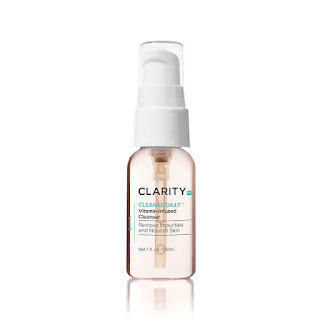Benefits of Using Plant-Based Skincare Products
Hydrated skin is one of the cornerstones of a beautiful and healthy look. Many people assume that applying moisturizing cream once a day is more than enough for this purpose. Unfortunately, there is more to keeping your skin healthy and hydrated so you can keep glowing and looking beautiful. In this guide, we will help you better understand hydrated skin, the difference between dry and dehydrated skin, and the skincare dips necessary to keep your skin hydrated.
Understanding Hydrated Skin
It is natural to think of water when you hear the term “hydration.” Hydrating your skin means increasing its water content. If the water content goes down lower than healthy levels, your skin can start looking dry, flaky, and dull. Hydrated skin has excellent elasticity. It is radiant and has a livelier tone. Like the rest of your body, the skin on your face also needs water. You need to quench its thirst to make sure you can maintain smooth and radiant skin that is well-hydrated. Before you can do that, you should learn the difference between dry and dehydrated skin.
The Difference Between Dehydrated and Dry Skin
People often confuse dehydrated and dry skin with being the same. While both terms are used synonymously, there are a few differences that set them apart. Dehydrated skin does not have enough water, but dry skin lacks adequate sebum. Sebum is that oily and waxy substance that coats your skin.
Signs of Dry Skin
- Itchiness
- Flaky skin
- Redness
- Skin irritation
Signs of Dehydrated Skin
- Dull looking skin
- Itchiness
- Dark circles that are more prominent
- Wrinkles or fine lines
- Puffiness around the eyes
- Dry mouth
7 Skincare Tips to Hydrate and Moisturize Your Skin
Hydrating your skin requires adding water to it. Moisturizing your skin involves using skincare products that can lock the water inside your skin. When you are looking to hydrate your skin, moisturizing it goes along with it. Adding only water to your skin can make it feel better temporarily, but the moisture will quickly leave if there is nothing there to lock it in. Moisturizing your skin locks in the water and creates a protective barrier that improves your skin texture, health and prevents water loss. Here are some of the most helpful skincare tips to keep your skin hydrated.
1. Drink plenty of water
The first step to hydrate your skin is to drink lots of water. The anecdotal recommendation is to drink at least eight glasses of water each day. However, you might need more than eight glasses of water, depending on your weight and physical activities each day.
2. Use hydrating skincare products
Water-based creams and natural skincare products are ideal for dehydrated skin. Plant-based skincare products designed to penetrate your skin to deliver water are essential for you. Products containing the following ingredients can be exceptional for your skin health:
- Hyaluronic Acid: It hydrates your skin and helps it maintain elasticity. Its water-binding qualities replenish your skin and prevent signs of early aging.
- Glycerin: Glycerin has hydrating properties that prevent your skin from feeling dry and itchy. Glycerin also attracts moisture from the environment and onto your skin.
- Urea: It breaks down and loosens up hard proteins to relieve itchy skin.
- Ceramides: They prevent water loss by repairing your skin’s natural barrier and helping it retain moisture.
- Panthenol: It penetrates the skin to deliver moisture to the deeper cells. It also counteracts water loss through skin layers by stimulating cells that can retain water.
3. Avoid using hot water for a long time
It might seem odd that staying in water for long can dehydrate your skin. However, you should avoid using hot water showers or bathing for too long in it. Prolonged exposure to hot water can deteriorate your skin’s natural barrier that retains moisture. The result is moisture content being lost along with the natural skin oils that retain water. Lukewarm water is far better for your skin health.
4. Use hydrating face masks
Hydrating face masks are an excellent way to pamper yourself. Adding a hydrating face mask to your skincare regimen can keep your skin plump and moist. Additionally, hydrating masks can also reduce dark circles and wrinkles formed by dehydrated skin.
5. Invest in a humidifier
If the air around you is dry all the time, the moisture on your skin can begin evaporating, especially during the winters. Investing in a humidifier can help you maintain ideal moisture levels for indoor air to prevent water loss.
6. Sunscreen is your best friend
Sunscreen is a fantastic way for you to protect your skin from all kinds of damage. Too much sun exposure can also break down collagen and elastin, making it lose its elasticity and strength. Buying and using a broad-spectrum sunscreen that protects you from UV rays can prevent dehydration from sun exposure.
7. Eat fruits with plenty of water
Fruits and vegetables that are rich in water content can be amazing for your skin health. These food items are not just good for hydrating your skin. Fruits like lemons and oranges are packed with Vitamin C and other essential nutrients that can help you maintain more hydrated and healthier skin.
Are you Looking for Natural Skincare Products to Keep Your Skin Hydrated and Healthy?
When it comes to keeping your skin hydrated and moisturized to enjoy a healthy glow, nothing beats the benefits of using natural skincare products. At Clarity RX Clinical Skincare, we offer safe and healthy skincare products made using plant-based ingredients to get you the best possible results for your regimen to keep your skin hydrated and moisturized. No more harmful chemicals or additives - only high-quality natural ingredients.
Shop at Clarity RX Clinical Skincare to get the best skincare products for your skincare regimen for clear, glowing, beautiful, and healthy skin.

Comments
Post a Comment